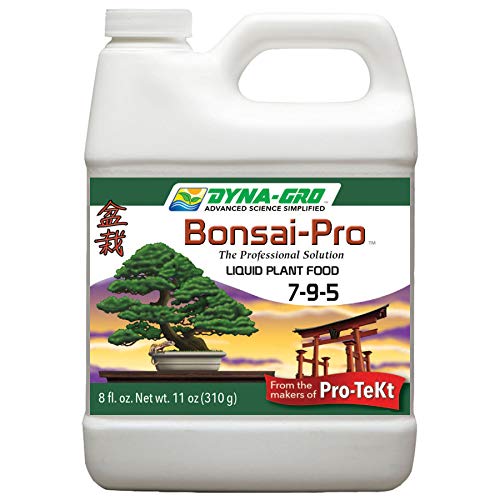Figuring out how to care for your plants can be tricky sometimes. Do you have a bonsai tree you want to fertilize but don't know which kind will work the best? We have done plenty of research to find you some answers.
Use a slow or continuous-release fertilizer on your bonsai tree. Generally, fertilizers rich in phosphate, nitrogen, and potassium will benefit bonsai and keep them strong and healthy. Formula-wise, we recommend either a pellet or liquid plant food option to use on your tree, so it gets as many nutrients as possible.
As we begin, we will cover all things bonsai. Whether you haven't fertilized your tree yet or want to try a new formula, we've got an idea for you. With that said, let's get right into this post!
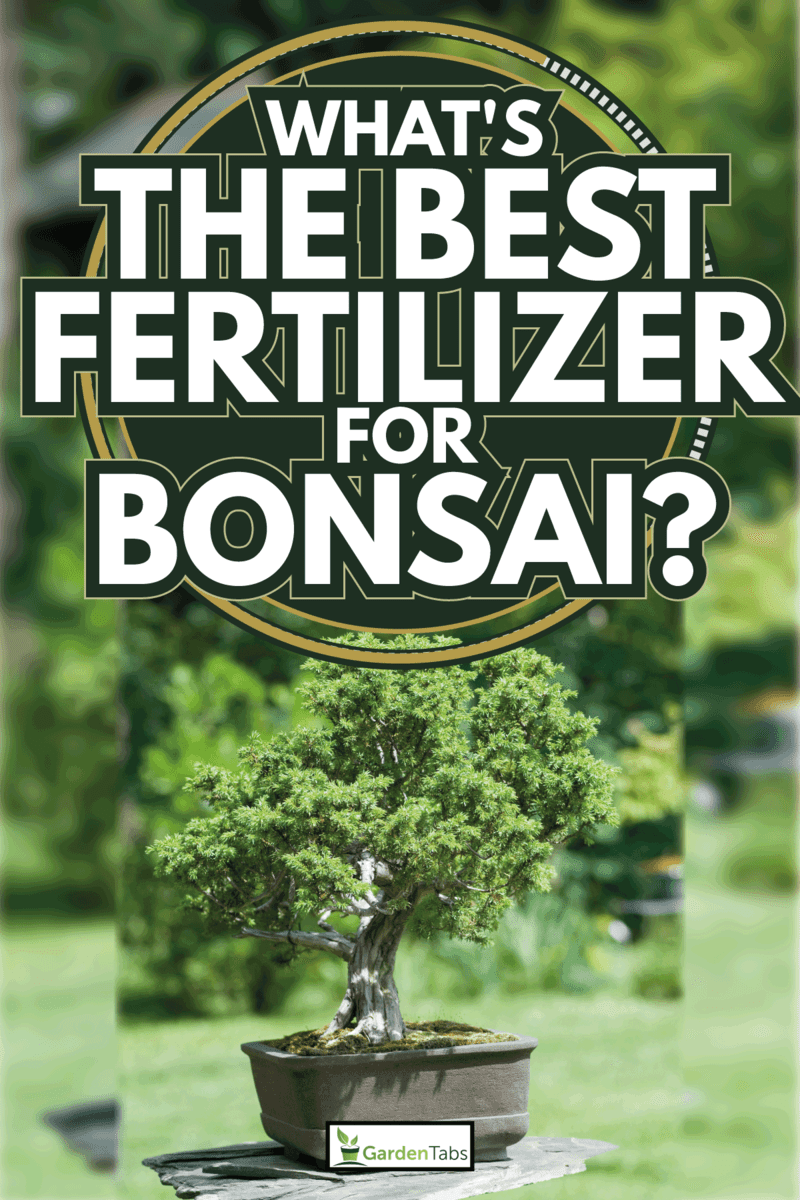
What Fertilizer Is Best For Bonsai?
Slow or continuous-release fertilizers will work the best on bonsai. Generally, you want to find a balanced fertilizer that has nitrogen, phosphate, and potassium. This mixture will give your plant everything it needs to flourish.
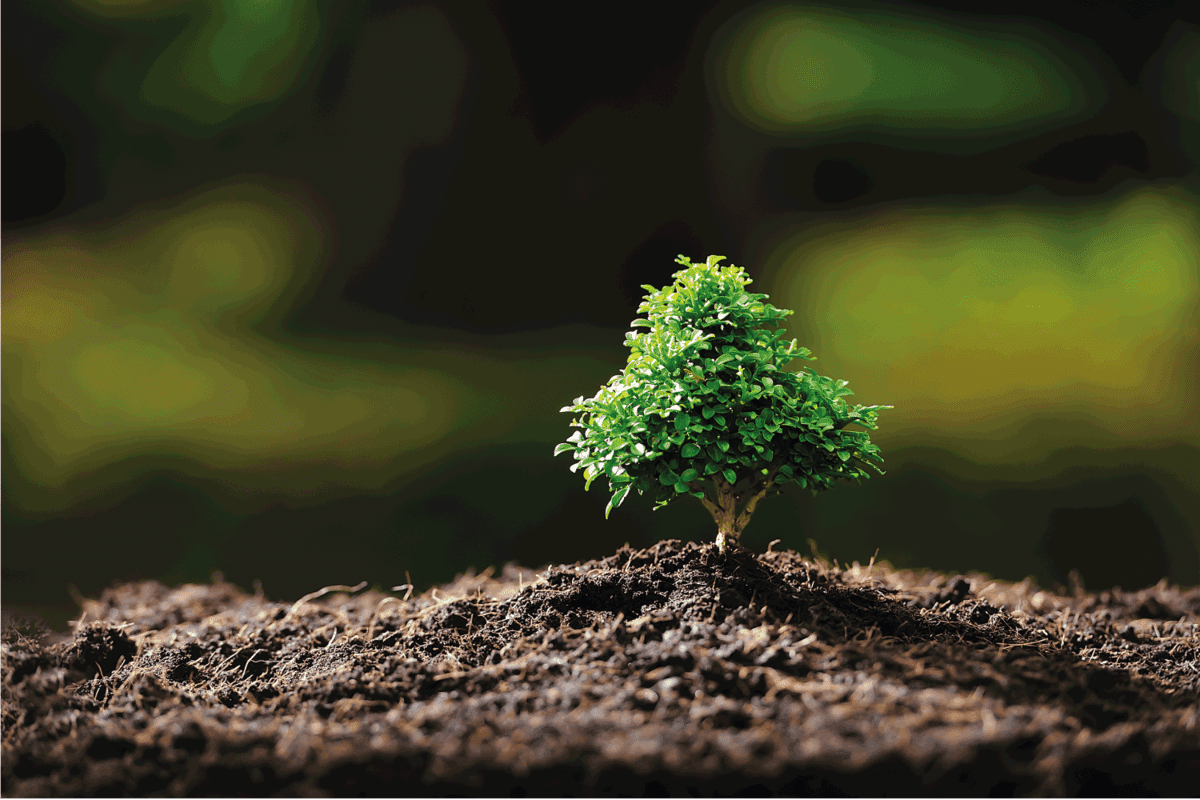
On top of that, we recommend using a pellet or liquid fertilizer on your bonsai so you don't shock its roots. Using super potent plant foods can cause more harm than good for bonsai, so try to be careful with the products you use on your tree. Here are a few examples:
The Grow Co Gentle Slow Release Bonsai Fertilizer
This fertilizer has a gentle slow-release formula, essential macro/micronutrients, works inside and outdoors, and comes in a five-ounce bag.
Dyna-Gro Bonsai-Pro Liquid Plant Food
This liquid fertilizer has nitrogen, phosphate, and potassium that mixes into your plant's water. Bonsai-Pro comes in an eight-ounce bottle.
Follow this link to view it on Amazon.
What Nutrients Do Bonsai Trees Need?
A bonsai tree isn't too hard to please. According to Bonsai Outlet, your tree needs six primary nutrients including:
- Carbon
- Hydrogen
- Oxygen
- Nitrogen
- Phosphorous
- Potassium
The first three on this list naturally come from air and water, while nitrogen, phosphorous, and potassium are supplemental. Usually, the best way to make sure your tree gets these key nutrients is to use a fertilizer that includes them, which is why fertilizing bonsai is so important.
Do You Need To Fertilize A Bonsai Tree?
When it comes to fertilizing bonsai, we think doing this is a good idea. Considering that bonsai trees are kept small, it's vital to regularly give them extra nutrients, especially during their growing seasons.
Of course, not all bonsai's are the same, but it never hurts to give your plant a boost of energy.
When Should I Fertilize My Bonsai?
Typically, you want to fertilize a bonsai during its spring and summer growing season. Most bonsai will start to show signs of new growth in the early spring, which indicates they are ready for fertilizer, while some will take a bit longer, leading into the summertime.
That said, bonsai will usually stop absorbing nutrients as the fall approaches and their dormancy begins. So, it would be best if you tried to get the most out of your tree in the spring and early summer.
How Much Fertilizer Does A Bonsai Tree Need?
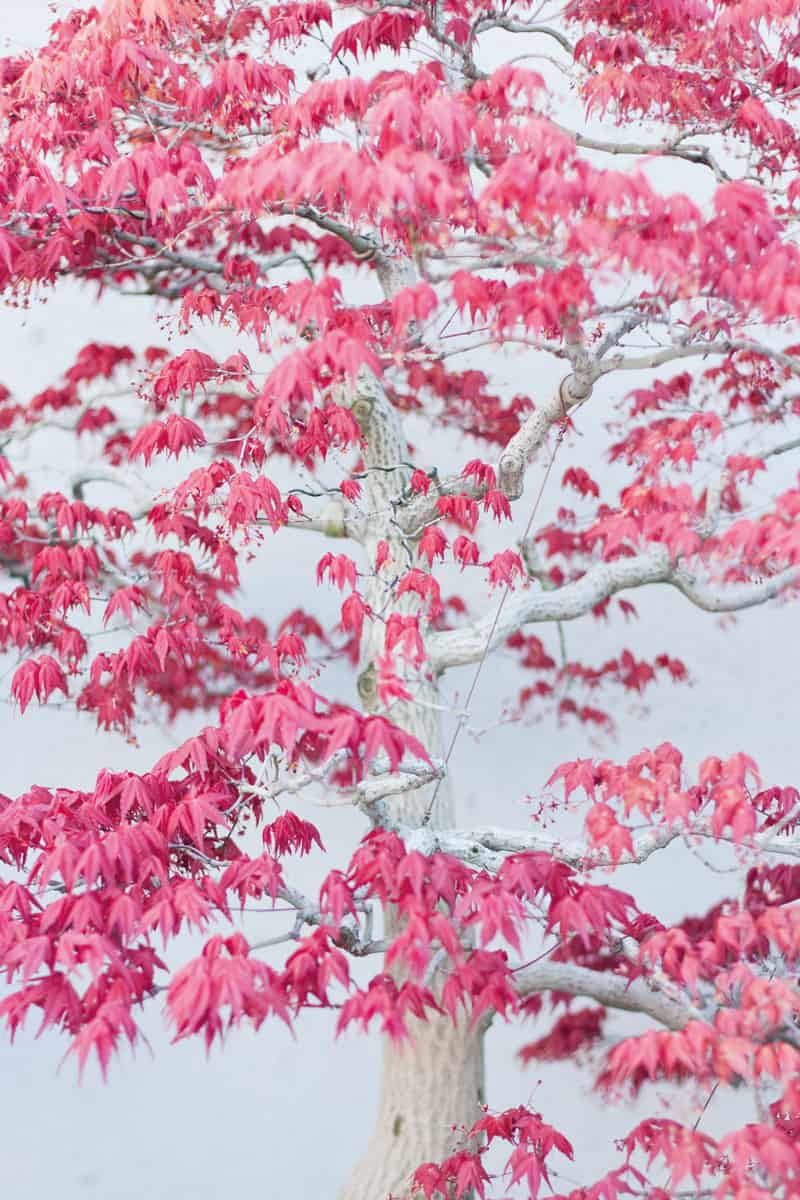
In general, you should fertilize your bonsai once per week during its growing season. Like we mentioned above, bonsai trees stop absorbing nutrients as the fall/winter approaches, so it's best to give them as much as possible in the spring and summer.
That said, if you decide on a slow or continuous-release option, you won't need to fertilize again for a few weeks or even months, but this depends on your product's formula. Here is an example of a slow-release fertilizer:
Bonsai Fertilizer Pellets by Perfect Plants
This slow-release bonsai fertilizer is all-natural, lasts up to a year, promises not to shock your tree's roots, and comes in a five-ounce bag.
Click here to see it on Amazon.
Can You Over-Fertilize Bonsai Trees?
It is possible to over-fertilize a bonsai tree. Usually, you only want to use fertilizer on your bonsai once per week or a few times per month, so anything more can cause trouble for your plant.
According to Bonsai Sanctum, if you start to notice the leaves on your bonsai turning yellow/brown, wilting, or dropping prematurely, you might have over-fertilized, so try to leave your tree alone for a couple of weeks to let it normalize.
Do Bonsai Trees Need Special Soil?
Bonsai trees tend to thrive in unique soils. Bonsai prefer soil with akadama, pumice, lava rock, organic potting compost, and fine gravel, although these are not always necessary.
Generally, as long as your bonsai's soil has good drainage and a balanced pH, it should grow fine, but specialty mixes will be more beneficial. Of course, this doesn't mean you have to get fancy, but we would recommend finding a bonsai-friendly soil mix for your tree. This soil, for example, will be perfect for most bonsai:
JK Global Imports Bonsai Soil All-Purpose Mix
This bonsai soil mix is fast draining, has pumice, lava rock, calcined clay, and pine bark, a balanced pH, and comes in a two-quart bag.
Can I Use Miracle-Gro On My Bonsai Tree?
For those wanting to use Miracle-Gro on their bonsai tree, this might not be the best idea. Generally, Miracle-Gro fertilizer can be too harsh for a bonsai tree's roots, which can end up damaging your plant.
On top of that, Miracle-Gro fertilizer contains far too much nitrogen for a bonsai, so we wouldn't recommend using it.
Are Coffee Grounds Good For Bonsai Trees?
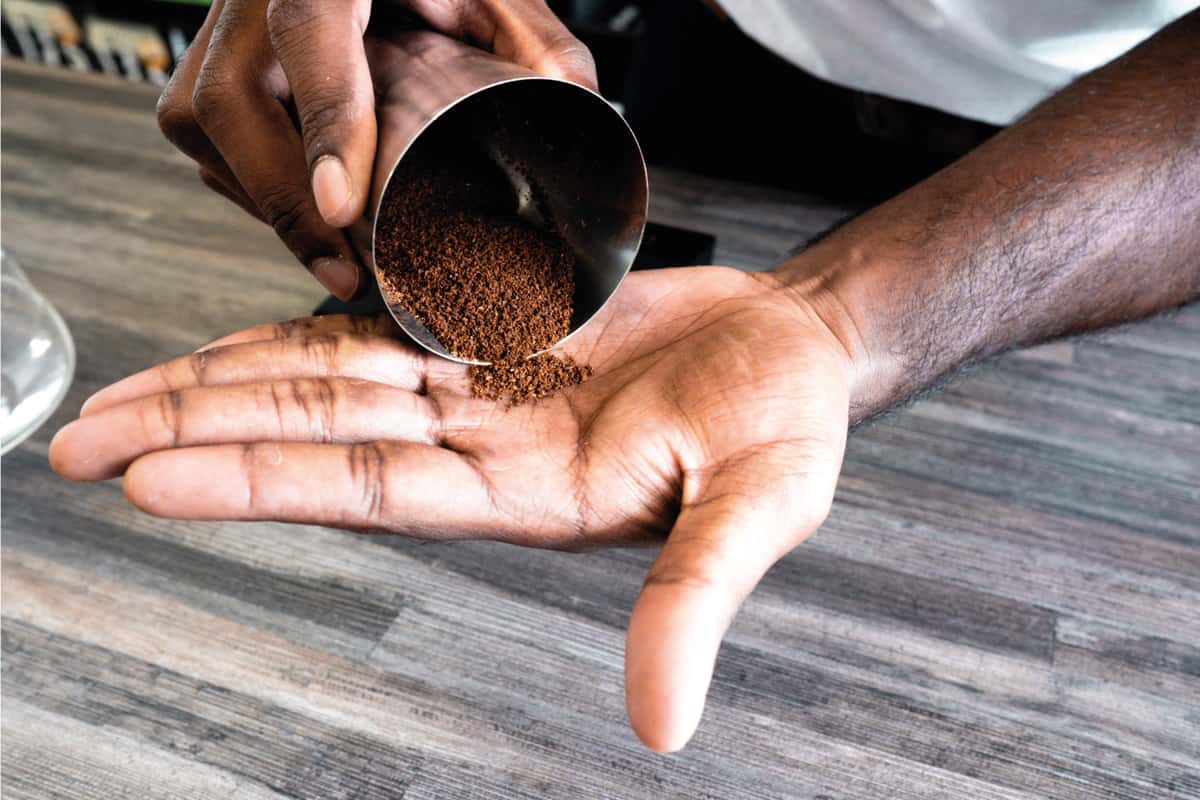
Coffee grounds are a common substance found in compost piles, but they can also be suitable for bonsai. Coffee grounds contain nitrogen, which bonsai love, so using a little on your plant is a great way to give it extra nutrients.
According to the Bonsai Society of Dallas, using coffee grounds on your bonsai's soil helps with water retention and aeration and can even work as a fertilizer. That said, try not to overdo it with your coffee grounds because too much nitrogen can shock your tree's roots.
Should I Use Compost On My Bonsai Tree?
Generally, using compost on a bonsai tree is a good idea. Like we covered, compost helps to supply bonsai with essential nutrients, so adding some to your tree's soil will be beneficial.
On top of that, you want to make sure your bonsai tree's soil drains well, so we recommend adding gravel or bark into your mix to help move excess water.
Bonsai Jack 1/4 Inch Pine Bark
This pine bark is all-natural, ready to use, helps with drainage, and comes in a few bag sizes.
Follow this link to see it on Amazon here.
Should I Mist My Bonsai Tree?
It can be helpful to mist a bonsai tree. Especially if your bonsai is indoor, misting it every few days is a great way to improve your tree's humidity and keep it hydrated.
That said, misting won't substitute watering your tree, so make sure to stay on your regular watering schedule.
How Often Should I Water My Bonsai?
It's very important to keep a bonsai tree well hydrated. Typically, you should water your bonsai every few days, keeping its soil damp at all times.
According to Jackson & Perkins, you don't want a bonsai's soil to dry out completely, so it's a good idea to feel it every couple of days. That said, you also don't want to drown your plant, so try not to over saturate your bonsai each time you water it.
Are Bonsai Trees Hard To Keep Alive?
Keeping a bonsai tree alive is not very hard. Although caring for these trees can be tedious, your bonsai should flourish as long as you give it enough nutrients and water it frequently.
Bonsai are relatively low-maintenance plants, which makes them perfect for those with busy schedules. So although shaping and waiting for them to mature can be difficult, overall, bonsai trees are a relatively easy plant to keep alive and care for.
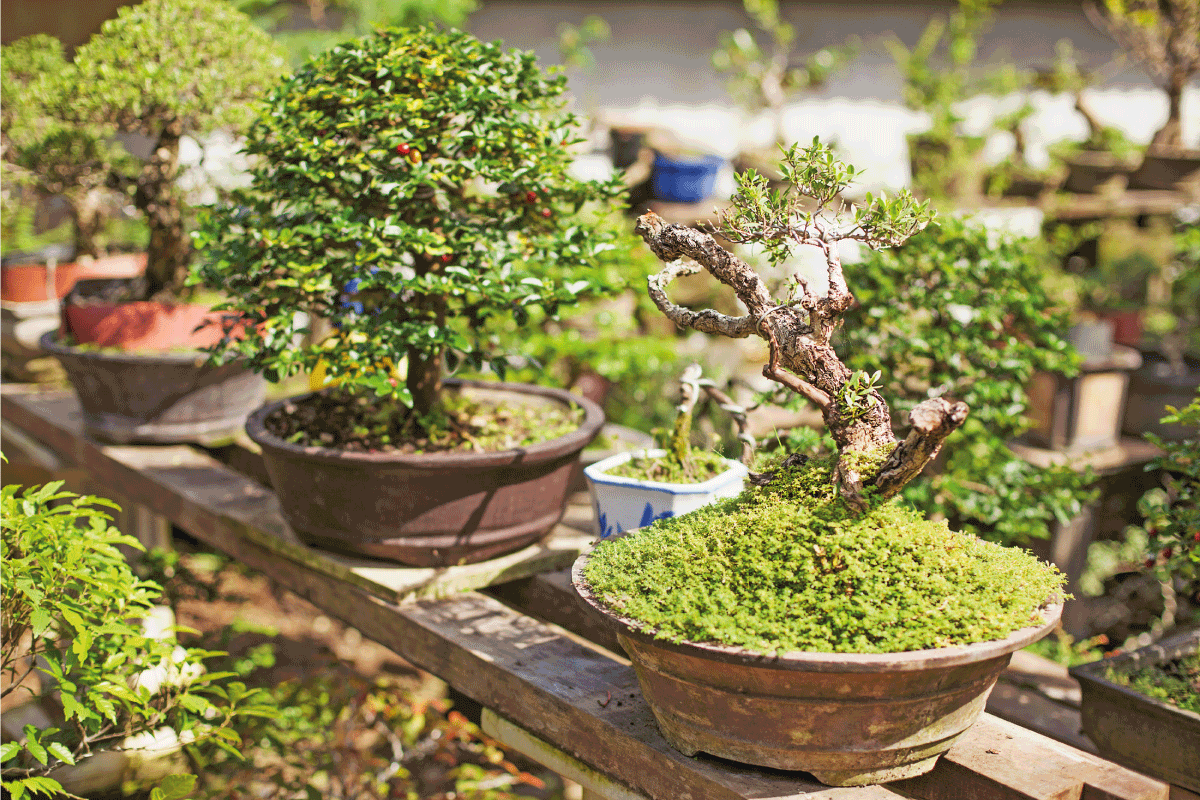
To Wrap Things Up
Whether you are new to bonsai or have a few trees started, knowing what type of fertilizer to use is essential. You want to use a slow or continuous-release fertilizer on your bonsai. Ensure that the fertilizer formula is rich in nitrogen, phosphate, and potassium.
We recommend using a pellet or liquid fertilizer option to ensure your tree gets as many nutrients as possible. Timeline-wise, you should fertilize your bonsai during its spring/summer growing season to give it the best chance of growing before its winter dormancy.
Regardless, make sure to water your bonsai regularly, and don't be afraid to sprinkle some compost over its soil to improve aeration and drainage.
Do you need more bonsai help? Check out these helpful related garden posts below!
What's The Best Pot For Bonsai Trees? [Inc. 11 Perfect Examples]


